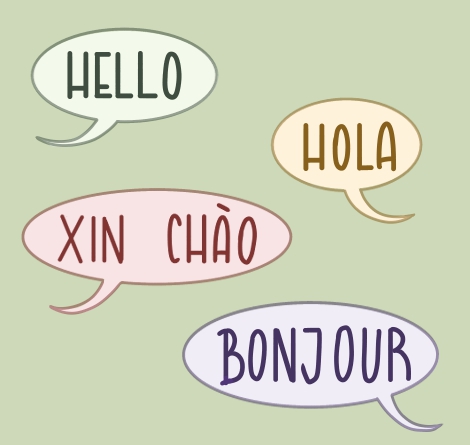
By Justin Hsieh, Staff Writer
“Foreign language” is a phrase we hear all the time. You need two years of a foreign language classes to graduate, students should start learning foreign languages earlier, that kid doesn’t speak a foreign language. But this seemingly innocuous phrase, used so freely in our everyday dialogue, has troubling implications that we often don’t consider.
For one, to describe any language as “foreign” is a crude and inaccurate generalization. It’s one thing to say “French is a foreign language to me,” but if we omit the “to me” qualifier and just say “French is a foreign language,” we’re implying French is a foreign language for everyone. If we say “Fountain Valley High School teaches three foreign languages,” that grossly misrepresents the people who speak French, Spanish or Japanese as their native language. For them, English is the “foreign language.”
More importantly, the word “foreign” itself is an issue because of its connotations. While, in a technical sense, “foreign” can simply refer to something that originates from a different country, the word has long held (and continues to hold) the implied attitudes of “alien,” “outside” and “strange” that are clearly inappropriate to apply to any cultural device, much less an entire language. If your cousin Ben visited from Spain, you wouldn’t say “Ben is a foreigner.” You would say “Ben is from Spain” or “Ben is from another country.” In the same way, calling a language “foreign” is not as accurate or considerate as calling it a “world language.” Classifying languages as “foreign” simply because they don’t happen to be native to our country or experience is the equivalent of xenophobic political rhetoric that categorizes human beings as alien or unwelcome just because they or their parents weren’t born in a particular country.
This entire discussion may seem like unwarranted nitpicking, but the truth is in our age of heightened globalization, literacy and communication: words are power. Labels are more than just convenient means of categorizing things; they carry the inseparable judgments that we have about those things. Therefore, saying “world language” instead of “foreign language” is a choice that does matter because it conveys a perspective that is far more tolerant and culturally sensitive.
This kind of alternative description is not a new or radical idea, either. The Spanish, French and Japanese programs at our school fall under the official title of the “World Language Department,” not “Foreign Language Department.” If this distinction is important enough to be made even at an administrative level, it is clear that students too should follow this example and be more conscious in their word choice.





